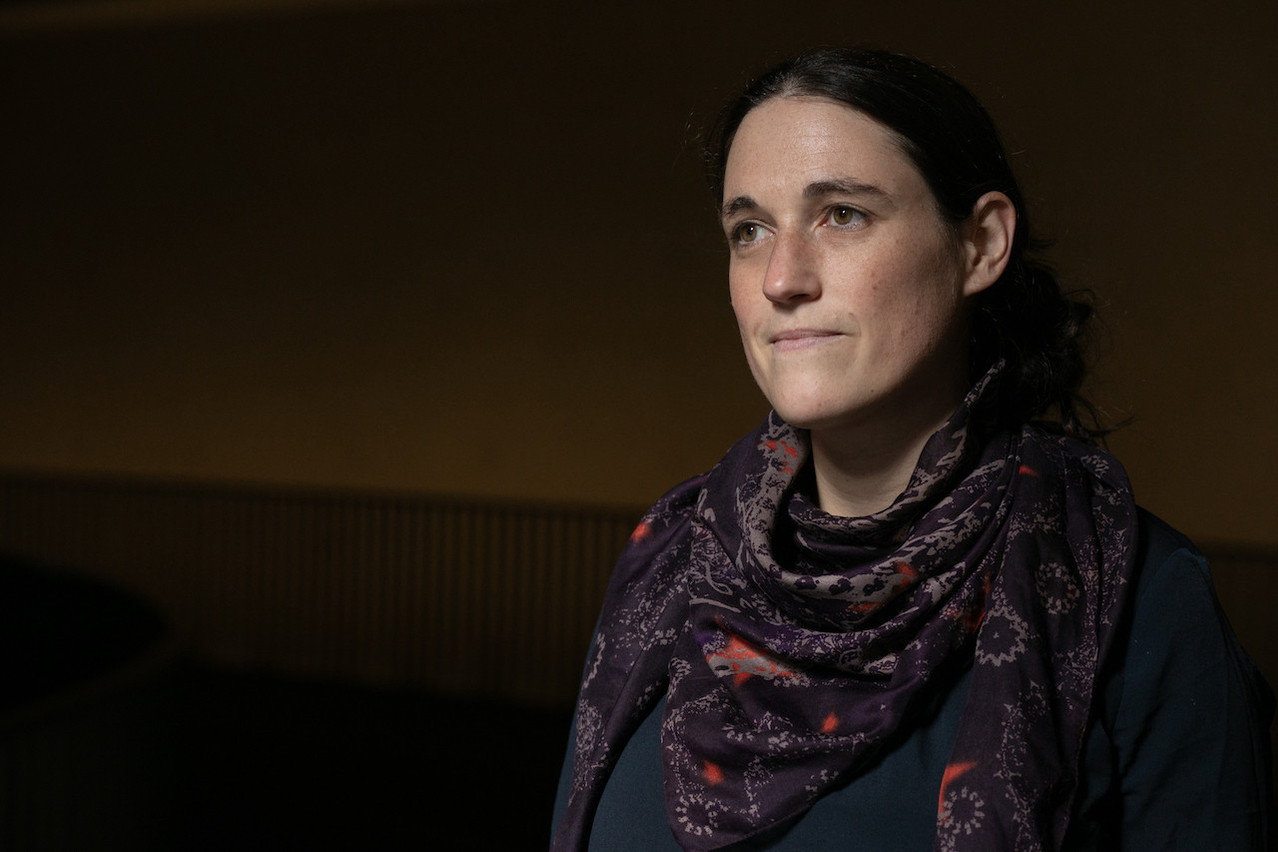Some 18 months after she joined SOS Détresse to set up an English-language helpline at the counselling service, psychologist Dr. Jessica Levy is about to see the project come to fruition. On Wednesday 5 October at 11am, the English-language helpline will open to callers--people in acute personal crises or suffering from long-term difficulties or who simply want clarification or support in their interpersonal relationships.
The idea of launching an English-language helpline is a recognition of the demographic changes in Luxembourg as English becomes more commonly used as the lingua franca among expats of different nationalities and is also spoken more by a new generation of Luxembourgers themselves.
We recognised that there are many people who might not feel comfortable enough to have a conversation about feelings, about deep thoughts, in Luxembourgish, German or French
“We recognised that there are many people who might not feel comfortable enough to have a conversation about feelings, about deep thoughts, in Luxembourgish, German or French,” Levy explains. “I think that English is that language that is spoken by the biggest group of those people who do not speak any of the other three languages.”
Levy, who has a PhD in psychology and also has training in systemic therapy--“even though I’m not a therapist yet,” she qualifies--was a researcher for five years before joining SOS Détresse. She was specifically brought in to set up the English-language service and run the training that volunteers on the helpline must complete.
Intense training
It is an intense training that requires a commitment for one and a half years, meeting for one full evening a week--with the exception of school holidays--Levy explains. During that time, the potential volunteers will explore self-experience--getting to know themselves and their limitations better--as well as learn about basic human needs, such as attachment and self-esteem.
“Then we have an entire block about conversation techniques and attitudes, where we deeply investigate how to have a helpful conversation and what techniques might be useful to best help the caller,” says Levy.
Volunteers don’t need any background in psychology or other social areas, as the training course covers the basic knowledge required to understand human topics like relationships as well as more psychological topics like depression, anxiety and addiction. “You just need a big interest in humans and, of course, to share our values of tolerance of respect,” says Levy.
The service launches with around a dozen volunteers on the phone lines. Levy says she was very impressed by the response to the call for volunteers. Indeed, further training sessions for a next intake of volunteers will probably start in the first half of 2023.
This could mean the service will ultimately expand from its one-day-a-week operation further down the line. “But of course, we will have to be there. We offer more time slots, so we will see how things develop and whether there is a demand from English-speaking callers.”
Read also
It is 45 years since launched its first counselling activity in Luxembourg, with phone lines manned by volunteers. Some 17 years later, in 1994, the organization signed a convention with the family ministry that allowed it to employ some professional staff. In 2013, SOS Détresse opened an email counselling service.
As well as its convention with the family ministry, SOS Détresse also relies on donations for funding. One event that helps significantly is the annual Darkness Into Light walk, held in May to raise awareness of mental health problems and suicide. “They are a big partner,” says Levy. The walk also raises funds for the and .
It takes lots of courage, lots of strength to even dare to talk to someone
Levy expects the reasons English speakers will call are probably similar to those concerns expressed by the callers already using SOS Détresse. “But of course, with this big group of expats, migration and family abroad might be a bigger topic.”
Anonymity is key
The organisation did witness a lot of callers dealing with the anxiety of social isolation during the initial lockdown imposed at the outbreak of the covid pandemic and then more questions about uncertainty and the consequences of new laws and restrictions as they changed. “Right now, we didn't see covid as a topic that much over the summer. But I assume that when the next wave comes, it will become a topic again.”
Anonymity is very important at SOS Détresse. “It is a big topic in on both sides. Because it allows the caller to maybe find the courage to call for the first time, especially, for example, if they suffer from suicidal thoughts, which is still kind of a taboo topic in society,” says Levy. “It takes lots of courage, lots of strength to even dare to talk to someone. It can also really help to have someone you don't know, because maybe you feel ashamed or you don't want to bother your family or friends.”
SOS Détresse’s English-language helpline for adults is open every Wednesday from 11am to 11pm on tel. 45 45 45.
Anyone interested in volunteering to man the English-language helpline can apply for training by contacting the service via email:


